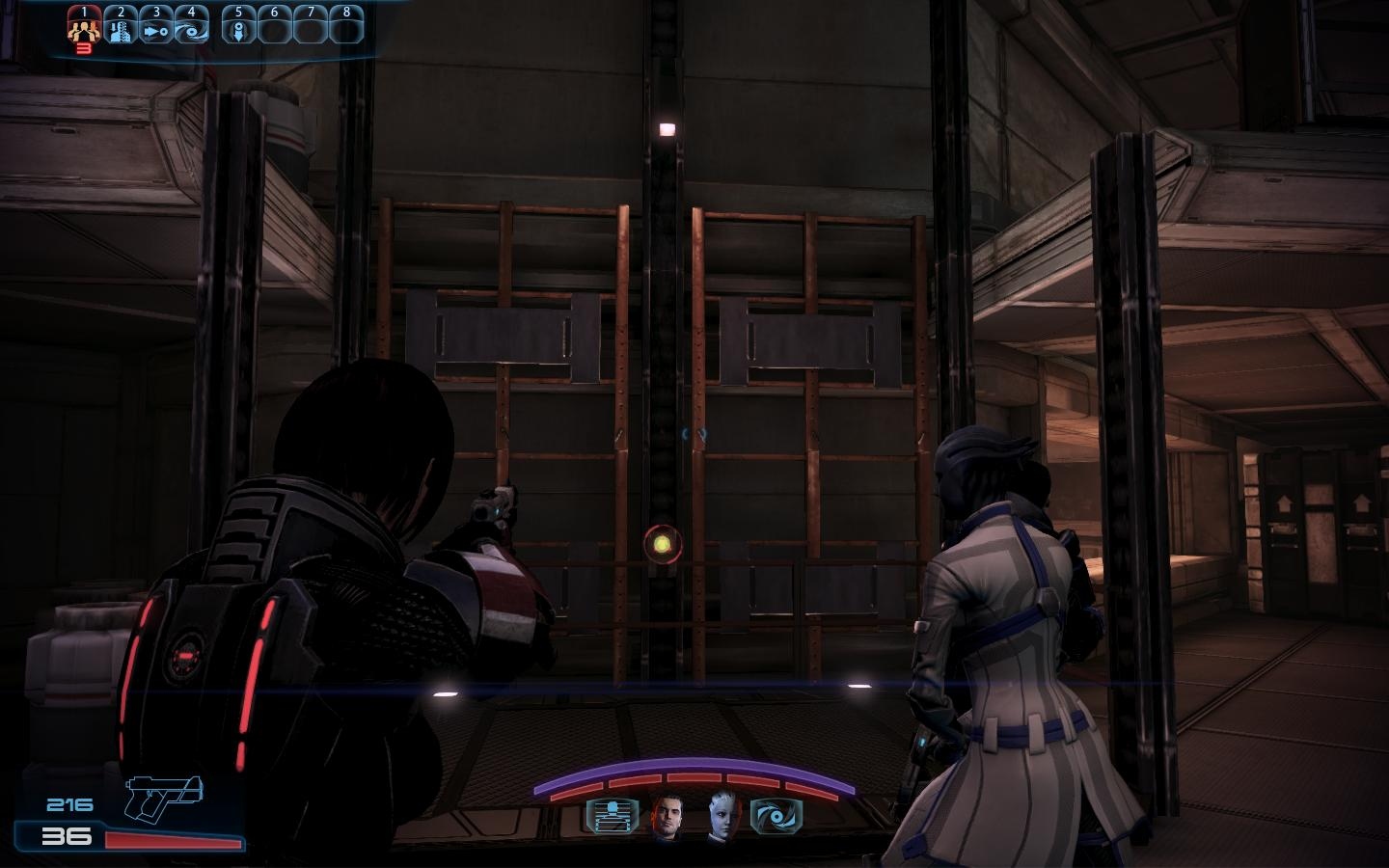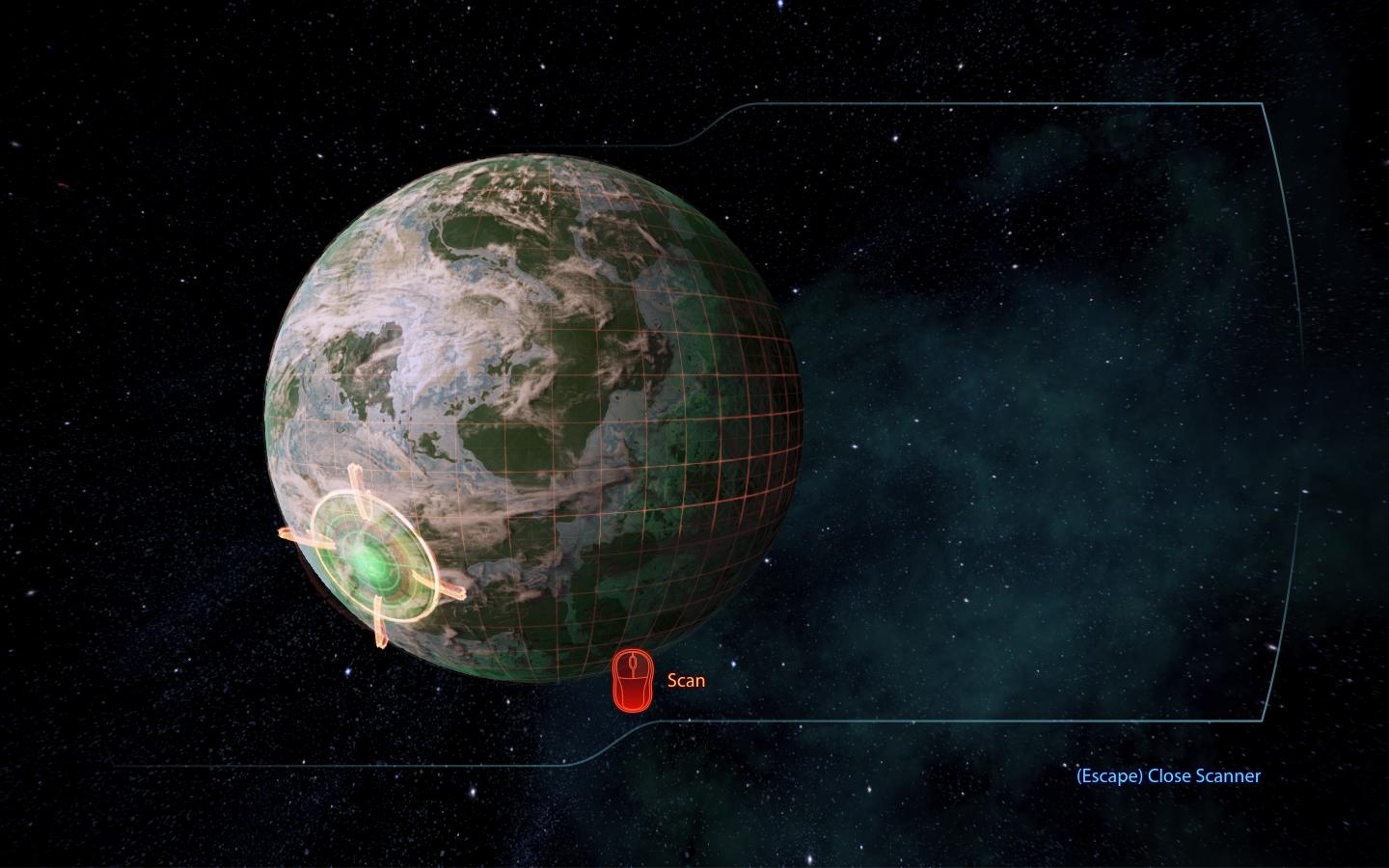This part of the review has more spoilers. I’m not going to reveal important plot specifics, but I am going to talk about the story structure and how some of the more promising mechanics actually panned out at the end of the game.
So Shepard’s goal in ME3 is to defeat the Reapers, and she’s going to do this by gathering forces for a final showdown while the Systems Alliance builds the Crucible, a magical MacGuffin which can apparently wipe out the Reapers in one fell swoop. It’s a bit of a crappy way to defeat them, but honestly given the way the Reapers have been built up over the course of the series it’s the only real way to do it; they can’t be defeated in conventional war and they can’t be talked down, so the only way to do it is via deus ex machina. For most of the game construction of the Crucible proceeds autonomously without Shepard’s input – she can find items and recruit groups who help in its construction, but they’re just added to the War Asset list rather than having a tangible affect on the outcome – but then about halfway through it turns out they need a MacGuffin to make the MacGuffin work. They don’t know what the MacGuffin MacGuffin is, but Shepard gets a tip; she has to go to a certain planet to find yet another MacGuffin to discover what the second MacGuffin is so that the first MacGuffin will work. At this point I was just about ready to put my fist through my monitor if the game revealed one more hitherto completely-unsuspected galactic artefact of phenomenal cosmic power, but the worst was yet to come.
For much of the game you’re not fighting the Reapers. You’re fighting Cerberus and the Illusive Man, who are now full-on cartoonishly evil rather than interestingly and ambiguously evil. During my trip to find the MacGuffin MacGuffin MacGuffin, I was confronted by the Illusive Man’s henchman who also wanted it, and promptly beat the shit out of him in a gunfight. Unfortunately that wasn’t good enough for the game, which then switched to a cutscene where the henchman effortlessly takes out Shepard and her party and swipes the MacGuffin. Afterwards, Shepard is really cut up about her failure to retrieve the MacGuffin and stop the Reaper invasion.
Only, it wasn’t her failure, was it? She succeeded. I succeeded. It wasn’t the henchman or the Illusive Man or the Reapers who stopped her, it was the game designers, who thought that it was entirely okay to remove all player control over the outcome of that mission and have it play out entirely via cutscene. Shepard’s reaction to her failure therefore isn’t heart-wrenching or tragic in any way, it’s just annoying. Annoying because it’s an artificial reaction to a contrived situation. Annoying because this is my Shepard, who I’ve built up over the course of three games now, and she’s acting completely out of character because Bioware think she should be undergoing some emotional conflict at this point in the storyline.
This sort of railroading is prevalent throughout the main plotline. There’s loads of things you can do to add more numbers to the War Asset list, but at the end of the day that’s all it is: a number. It doesn’t even have any effect on the way the end of the game plays out beyond a very slightly different cutscene at the end. The things Shepard does to affect the outcome of the war are very, very linear and restricted, and when the explanation for a certain thing happening is “Because plot” I start to wonder whether this can even be called an RPG-lite any more.
Nowhere is this more apparent than the ending. The retaking of Earth was a little underwhelming, but what I thought was the ending – the battle to deploy the Crucible – was quite well done. I would have been very satisfied if the game had ended there. Unfortunately Mass Effect 3 then proceeds on to the real ending. which comes completely out of fucking nowhere and makes literally zero sense, being a choice between three utterly contrived situations. It is pretty much Human Revolution’s “Push a button to pick an ending” only worse, because the endings make even less sense, are extremely vague and inconclusive and are frankly an insulting, unnatural and awkward way to round off the trilogy. I was later told that the head writer on the first two games, Drew Karpyshyn, left development on ME3 halfway through to work on The Old Republic, which goes some way towards explaining why the conclusion to ME3 is so disjointed and nonsensical, but I still have trouble believing that the entire rest of Bioware saw the plans for this ending and said “Yeah, looks good!”
Ugh. What I’m trying to get across here is that ME3 follows a markedly different philosophy of scenario design from the previous two games. Mechanically, the game is a triumph, and the characters – always Bioware’s strong suit – are as excellent as ever. As far as resolving the overplot is concerned, though, ME3 is an abject, pathetic failure. It’s why I said Bioware very nearly proved me wrong; I was all ready to reconsider my opinion of them until I actually finished the game, at which point they merely resoundingly confirmed it. While they have displayed an ability to improve and refine the nitty-gritty of actually playing the game, ME3 proves beyond a doubt that they have absolutely lost what little ability they had to satisfyingly resolve a story – and given that Bioware’s games are often referred to as “Guns and Conversation” rather than “RPGs”, not being able to get the Conversation part right rather sabotages the entire thing, I think.
I’m not saying you shouldn’t buy ME3. I was enjoying it immensely up until that final hour, and there’s actually a reason to shell out for it beyond wrapping up the plotline now because the multiplayer is also excellent fun. If your primary interest in the game is to find out what happens at the end, though, I think you’re better off saving your money and making up your own conclusion to the trilogy in your head. I can guarantee that whatever you come up with will make more sense than what actually happens, even if it involves 400 foot tall purple platypus bears with pink horns and silver wings; that, at least, would be self-conscious in its absurdity, rather than the all-too-serious mystical New Age bollocks the game confronts you with. As it is I’ve come out of it with a sense of crushing disappointment rather than the complete satisfaction I craved, and so ultimately I can only call ME3 a brave failure; one which pushes forward mechanically, but which completes Bioware’s regression away from making RPGs. I don’t know what ME3 is, but it’s not an RPG. Calling it an RPG would suggest that I had some control over the outcome besides pushing a button, and that is the one area where ME3 doesn’t just fail; it doesn’t even try.




So yeah, the ending is hilariously awful, as are the other bits the lead writer did. I mean, that’s quite a few levels of disconnected poor writing. I guess he’s been taking his tips from David Gaider and closely studying Dragon Age 2.
I think the high point for ME3 came fairly early on and the last third really struggled along because the volume of the awful started to overwhelm the solidly good.
There are lots of things that felt out of place or a bit flat for every great or poignant moment. It just seems sad that it is the individual writers who have produced the best in Mass Effect 3 than the people with the overall vision for the game. And the problem of the ending doesn’t just lie at the feet of Mac Walters, it is also at the feet of the producer, lead designer and the Drs, all of whom presumably signed off on it at some point. That’s rather sad.
Still, enough good stuff made it in and I quite enjoyed the combat, and pretty much all of the main missions apart from the last one.
Um, they mention the Catalyst the very first time they mention the Crucible and the lack of it was the reason why the Prothean’s couldn’t/didn’t use it.
Also if you get Javik (From Ashes DLC party member) then you get some nice additional background to this.
And they don’t take player agency away from you when Kai Lang beats you and takes the Prothean VI – the enemy blow the floor up from underneath you! Doesn’t really matter how the fight has been going up till then if they do that.
What was the point in me fighting that boss fight if, at the end of it, the game was simply going to go “LOL!” and have me lose anyway in a cutscene? Not only is that shitty narrative, it’s shitty game design since it makes my actions — in a game series that’s pretty much built around player actions having consequences — it makes *my* actions totally meaningless, instead trumping them with what the head writer wants to happen.
Let me put it another way. What is the difference between Kai Leng beating the shit out of me and taking the MacGuffin (which would result in a game over screen) and what the game actually does? Nothing, that’s what. The line separating the two outcomes is completely arbitrary and meaningless, as is most of the game’s main plot-related writing which is why I brought it up in the first place.
Also I don’t think I should have to fork out extra cash for crucial backstory that makes the game make sense. Also also the writers lampshading the enormous turd that passs for the Catalyst doesn’t excuse it one jot.